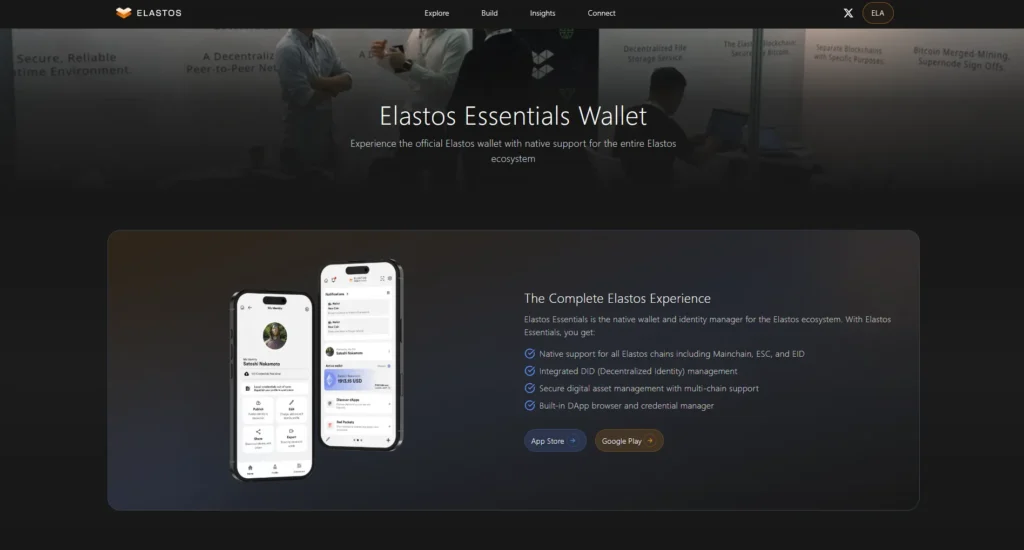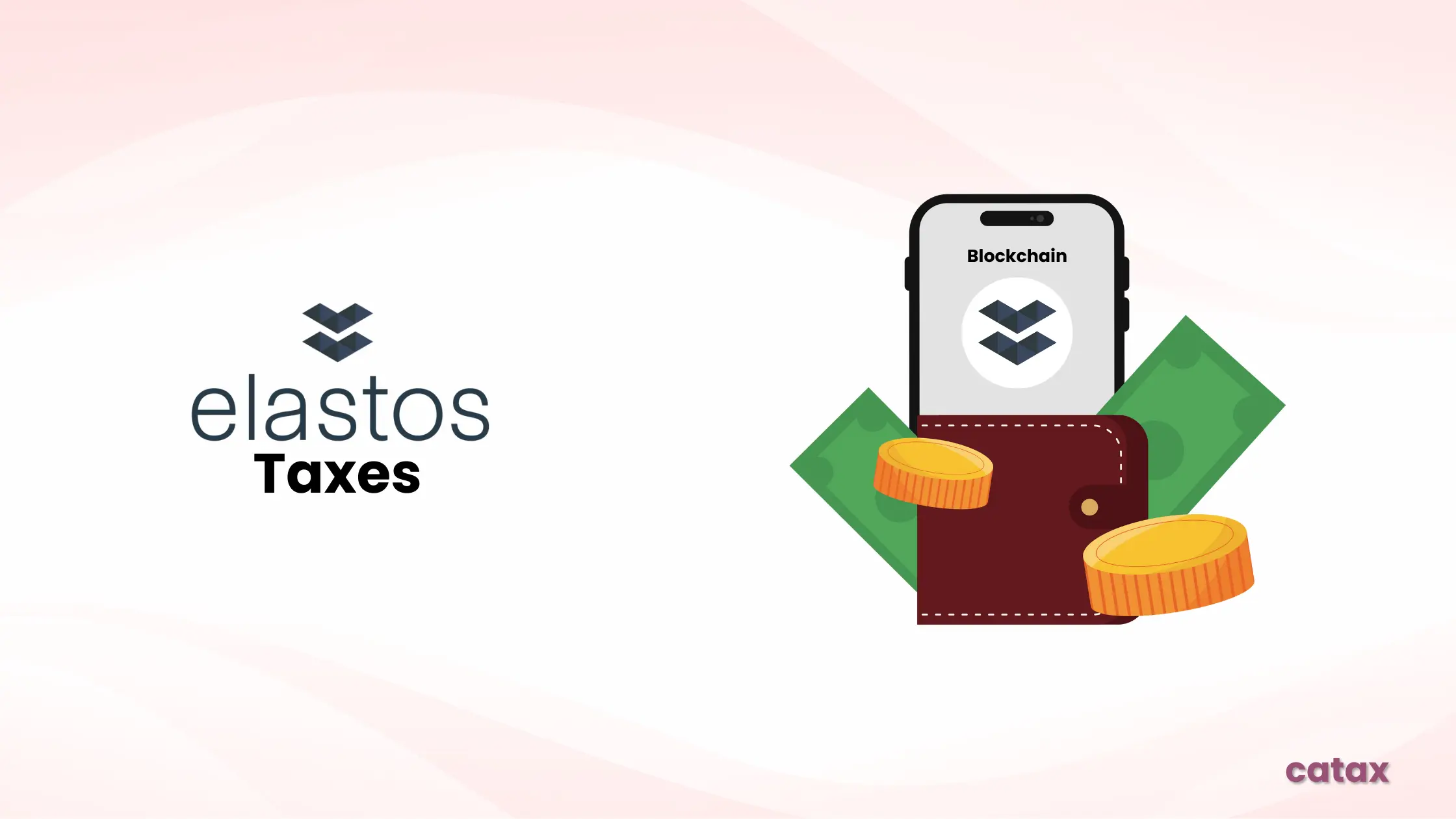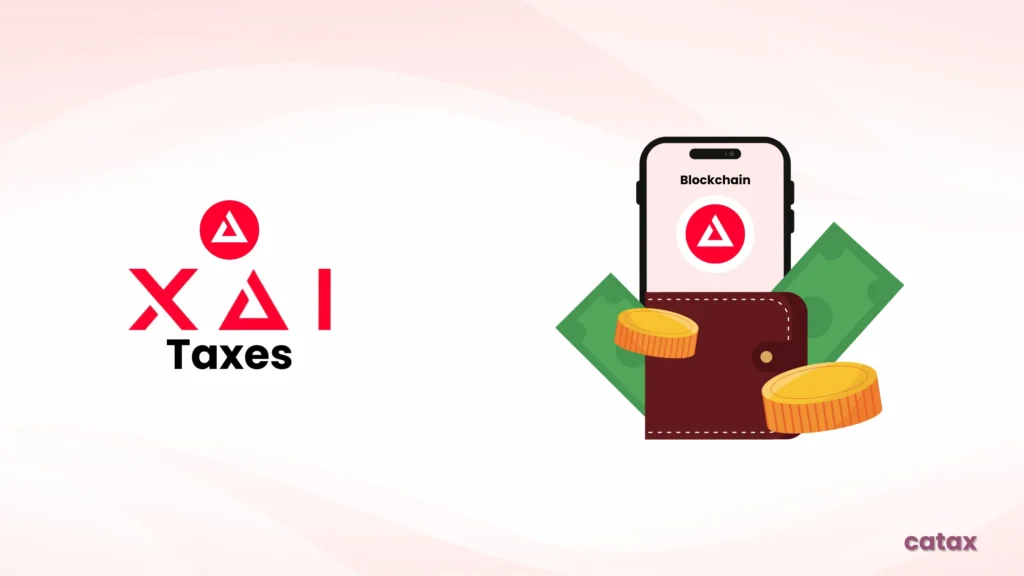Cryptocurrency tax rules vary by country, and Elastos (ELA) taxes transactions may be subject to taxation depending on local laws. Whether you buy, sell, trade, or stake ELA, understanding how tax authorities classify these activities is key to staying compliant and avoiding penalties.
This guide simplifies Elastos tax rules so you can confidently manage your crypto taxes and meet reporting requirements with ease.

- How to Connect Your Elastos Wallet to Catax
- Are Elastos (ELA) Transactions Taxable?
- Can You Deduct Trading Fees and Other Costs?
- How Is Elastos (ELA) Taxed Based on Holding Period?
- How Is Staking Income Taxed?
- Can You Claim Elastos Losses for Tax Benefits?
- How to Stay Compliant with Elastos (ELA) Tax Rules
How to Connect Your Elastos Wallet to Catax
To easily track your Elastos (ELA) transactions and calculate taxes, follow these steps to connect your wallet to Catax:
- Open your Elastos wallet or a supported block explorer (such as MetaMask, Trust Wallet, Ledger, or any compatible wallet).
- Copy your public wallet address from your Elastos wallet.
On Catax:
- Log in and select your country.
- Select Chain, then search for Elastos Wallet.
- Paste your public address and click Connect.
Once linked, Catax will automatically sync your ELA transactions and simplify your crypto tax reporting.
Calculate My Taxes ➤Are Elastos (ELA) Transactions Taxable?
Yes, in most countries, Elastos transactions are taxable. Governments may classify ELA as a capital asset, property, or income depending on how it’s used.
When Do You Have to Pay Taxes on Elastos?
You may be required to pay taxes when you:
- Sell ELA for a profit – If you sell Elastos for more than you paid, the profit is typically subject to capital gains tax.
- Trade ELA for another cryptocurrency – Swapping ELA for Bitcoin, Ethereum, or any other crypto may be considered a taxable event.
- Use ELA to make purchases – Spending Elastos on goods or services may trigger capital gains tax if the value has increased since acquisition.
- Earn ELA from staking or participation rewards – Rewards earned in ELA are often treated as income and taxed when received.
- Get paid in ELA – If you’re compensated in Elastos for work or services, it is usually taxed as income based on its fair market value at the time of receipt.
Since tax rules vary by jurisdiction, always check how your country handles crypto taxation.
Can You Deduct Trading Fees and Other Costs?
Many Elastos users wonder if they can deduct costs like trading fees or wallet expenses. This depends on local tax regulations.
Some countries allow deductions for:
- Trading fees when buying or selling ELA.
- Network or transaction fees for sending ELA.
- Security expenses such as hardware wallets or encrypted storage solutions.
Others may only allow deduction of:
- The initial purchase cost of ELA (your cost basis), without permitting additional deductions.
Be sure to consult your country’s tax code or a tax professional to know exactly what’s deductible.
How Is Elastos (ELA) Taxed Based on Holding Period?
The amount of tax you owe on ELA profits may depend on how long you’ve held your tokens:
- Short-term holdings (less than a year) – Often taxed at your regular income tax rate.
- Long-term holdings (over a year) – Some countries offer reduced tax rates for long-term crypto gains.
- Flat-rate systems – A few countries apply a fixed tax rate on crypto gains, regardless of how long you held the asset.
Understanding your country’s holding period rules can help you make smarter financial decisions and potentially lower your tax burden.
You can also check out our Country-Specific Guide for Crypto in Your country. This guide provides insights on regulations, tax implications, and compliance measures breifly explained for each country.
How Is Staking Income Taxed?
Elastos staking rewards provide passive income, but tax treatment varies across countries. Some governments tax staking rewards when you receive them, while others apply tax only when you sell or convert them.
How Countries Tax Staking Rewards
- Taxed as income – In some countries, staking rewards are treated like a salary or service income. This means taxes are due when you receive your ELA rewards, taxed at standard income rates.
- Taxed as capital gains – In other jurisdictions, staking rewards are only taxed when sold. In such cases, you only pay tax on the profit from selling ELA.
If you stake Elastos, knowing when taxes apply can help you better prepare for tax liabilities. In some countries, taxes are owed even if you haven’t sold your staking rewards.
To avoid unexpected tax bills, check how staking rewards are treated in your country before staking Elastos.
Can You Claim Elastos Losses for Tax Benefits?
Not every Elastos trade results in profit, and realizing a loss may offer tax advantages. Here’s how different countries handle crypto losses:
- Loss offsets – Some governments allow you to use Elastos trading losses to offset gains, so you only pay tax on your net profit.
- Loss carryforward – If you didn’t make gains this year, some countries let you carry forward losses to reduce taxes in future years.
- Limited deductions – Other jurisdictions may not permit any deductions for crypto losses, meaning your ELA losses might not help reduce your tax bill.
Accurately tracking every trade and maintaining detailed records ensures you’re reporting correctly and taking advantage of tax relief where allowed.
How to Stay Compliant with Elastos (ELA) Tax Rules
As crypto regulations evolve, it’s crucial to stay compliant to avoid tax penalties:
- Understand how your country taxes Elastos – Are your ELA gains considered capital gains, income, or business earnings?
- Check for deductions – See if you can deduct expenses like trading fees, staking rewards, or wallet costs.
- Maintain detailed records – Track all Elastos transactions including buying, selling, trading, staking, and spending.
- Use a tax platform like Catax – Catax simplifies tracking and automates your Elastos tax reporting.
- Consult a tax advisor – If you’re unsure of the rules, a professional can help you stay compliant and optimize your tax outcomes.
By staying informed and organized, you can confidently manage your Elastos taxes and meet your legal obligations with ease.
Book a Free Consultation Now →

